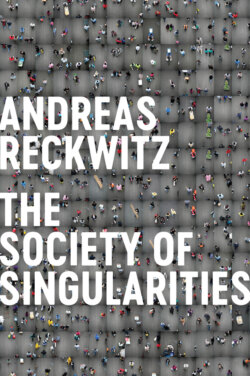Читать книгу Society of Singularities - Andreas Reckwitz - Страница 17
2 The Social Logic of the Particular
ОглавлениеAt first glance, the idea of a social logic of singularities may seem oxymoronic. Is not the social, after all, the natural counterpart of the particular? Is it not the déformation professionnelle of sociology to focus exclusively on crowds and collectives, rules and schemata? At its heart, that is, is sociology not a science devoted to the social logic of the general?1 It is certainly no coincidence that sociology emerged as a discipline during the age of industrial modernity, and it still carries around a great deal of conceptual baggage from that time. Therefore, it might not seem well equipped to analyze processes of singularization – a problematic shortcoming if the goal is to understand late-modern society, which is organized around these very processes. In order to investigate the latter in a sociological and yet appropriate manner, it is necessary from the beginning to set aside the idea that sociality and singularity are fundamentally incompatible with one another. In fact, I would like to oppose this idea in decisive terms. In the case of singularities, it is not a matter of individual “vestiges” that remain behind after the social has withdrawn, or some sort of antithesis that battles against the social. Rather, if we remain open and curious about the interrelations and entities that assemble “the social,” it will be possible to view and analyze the logic of singularities, too, as a genuinely social logic.
What do I mean by singularities? In the history of concepts, the term “singularity” is relatively unladen; indeed, it is almost a neologism.2 Yet it seems necessary to employ a little-used term in order to focus on the realm of phenomena that it designates without introducing any false presumptions. It encompasses a broad semantic field of related concepts: the particular and the special, the unusual and the extraordinary, individuality and the individual, the “other” and the peculiar, the unique and idiosyncratic, originality and the original, the exceptional and the exclusive. My concern here is not to relate a detailed conceptual history but rather to focus on the matter itself: the social logic of the particular, which has been central to the existence of late-modern societies.
